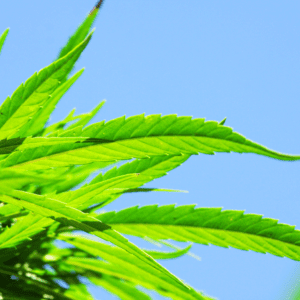Unveiling the Truth: Cannabis Impact on Prison Demographics

Amid the ongoing debate surrounding Amendment 3, which proposes to make Florida’s recreational marijuana policy the most lenient in the nation, significant misinformation about the state’s prison system has emerged. Recent narratives have incorrectly suggested that numerous individuals are serving time in Florida’s state prisons solely for possessing small amounts of marijuana. These claims, often perpetuated by certain media outlets and activists, do not align with the facts.
The Facts About Marijuana Possession and Prison Sentences
According to the Florida Department of Corrections, the idea that individuals are incarcerated in state prisons exclusively for possessing 20 grams or less of marijuana is false. With a comprehensive database of over 87,000 incarcerated individuals, the department confirms that no one is serving a state prison sentence solely for such low-level possession. Florida law clearly states that possession of 20 grams or less of marijuana is classified as a misdemeanor, which does not lead to state prison sentences.
Understanding the Real Offenses Leading to Incarceration
The only marijuana-related offenses that result in state prison sentences involve larger quantities that align with trafficking charges. Under Florida Statutes, trafficking is defined as possessing more than 20 grams of marijuana. Currently, there are only 37 individuals in state prison for the primary offense of possessing more than 20 grams of cannabis. However, these cases are not straightforward; they involve additional criminal activities or extensive criminal records that significantly contributed to their incarceration. These individuals constitute less than 0.05% of the total inmate population.
The Broader Context of Drug Use and Crime
My extensive experience in corrections, spanning nearly 30 years, has provided me with a deep understanding of the complex relationship between drug use and criminal behavior. Many inmates acknowledge that their substance abuse, including marijuana, played a significant role in their criminal activities and subsequent imprisonment. Data from the Florida Sheriffs Association reflects a concerning rise in traffic fatalities involving cannabis, from 14.8% in 2013 to 24.3% in 2020. This trend aligns with evidence from states with legalized recreational marijuana, where increases in emergency room visits and marijuana use disorder have been reported.
Potential Consequences of Legalizing Recreational Cannabis
Should Amendment 3 pass, there is a strong likelihood of increased crime related to the legalization of marijuana, which could potentially lead to a rise in the state’s prison population. Managing this increase would require substantial financial investments to expand and maintain prison capacity.
Voter Awareness is Key
It is imperative for Floridians to be fully informed about the implications of Amendment 3 before voting. Understanding the realities of marijuana-related incarceration and the potential consequences of legalization is crucial in making an informed decision this November.











